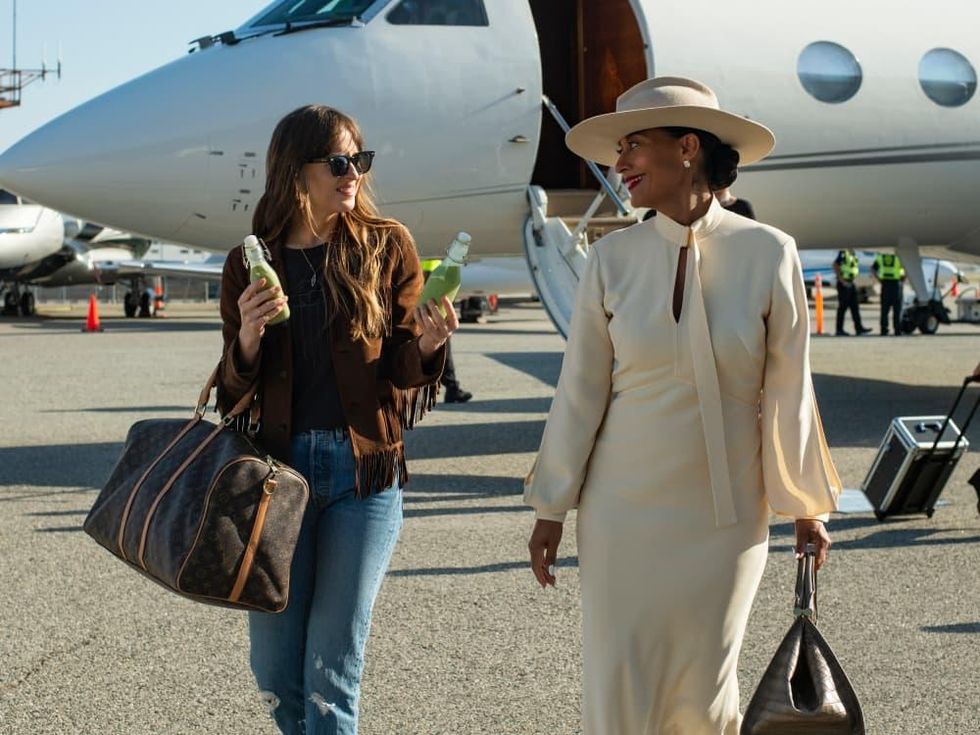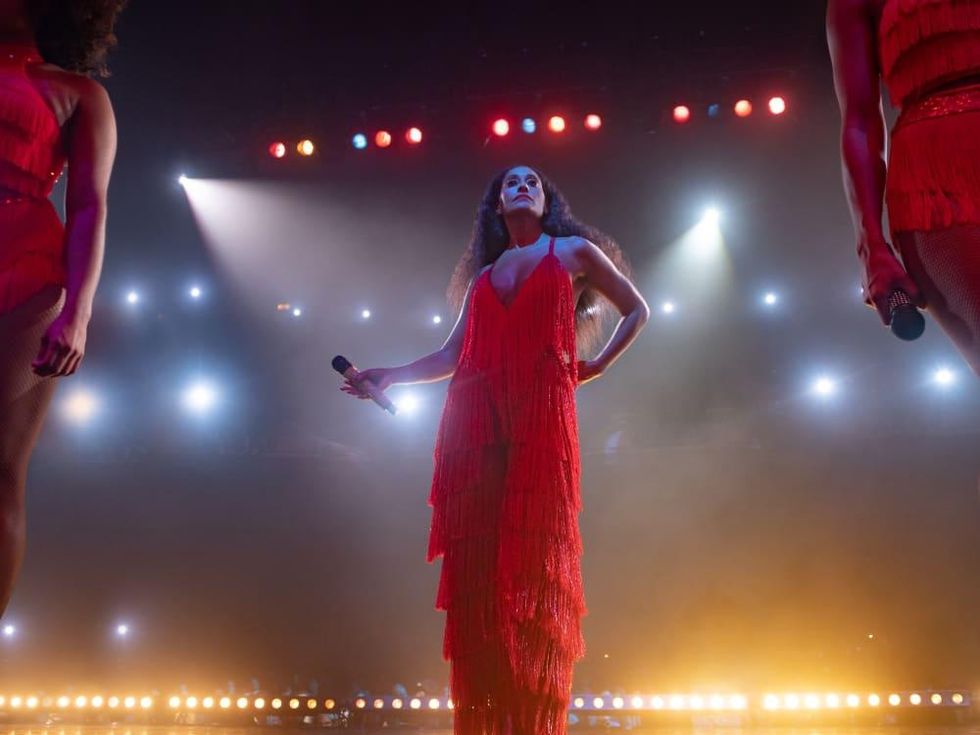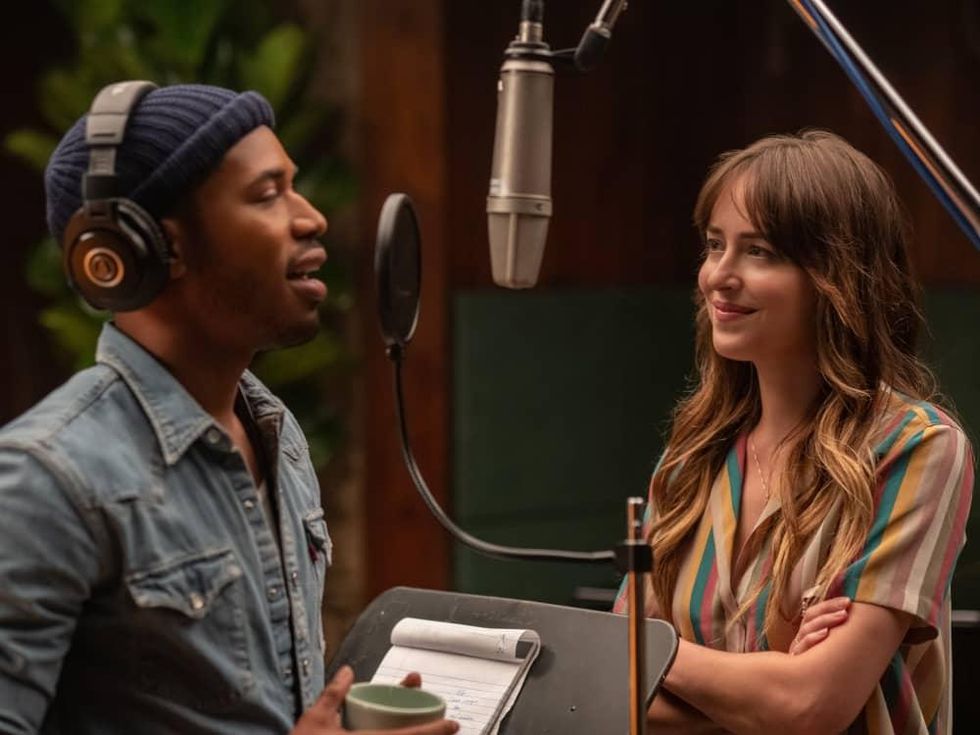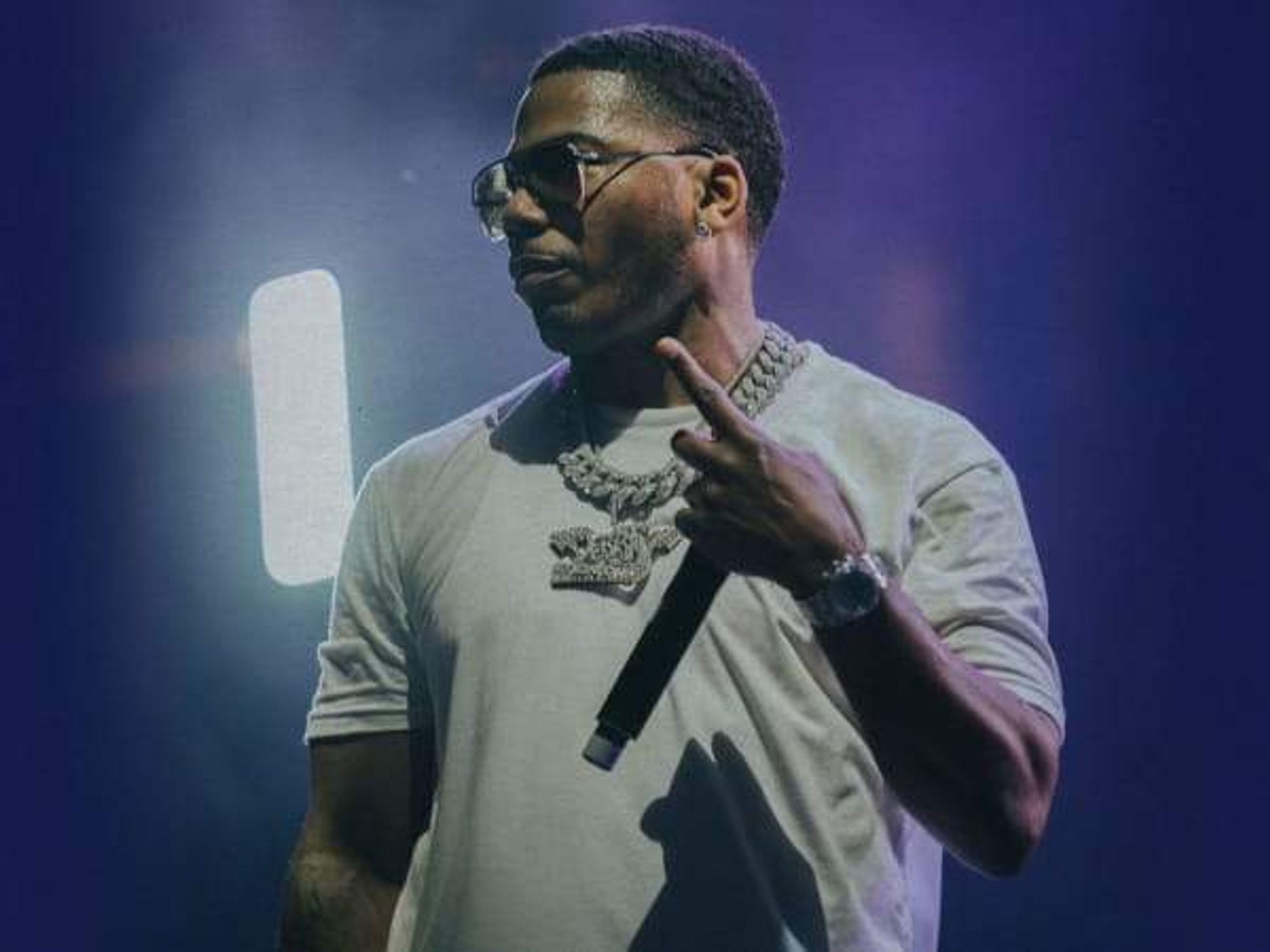Movie Review
Female-centric The High Note can't find the right tune
The list of professions that women usually play in films is depressingly small, so it’s notable when a movie goes beyond the stereotypical roles. The High Note gives its two female leads plenty of agency in their careers, but somehow still keeps them down in their personal lives.
Grace Davis (Tracee Ellis Ross) is a world-famous singer trying to keep her career current after a heyday in the 1990s and 2000s. Maggie (Dakota Johnson) serves as her personal assistant, but aspires to become a music producer. Maggie works on her passion surreptitiously, even going so far as remixing one of Grace’s songs in hopes that she will include it on her next album.
Grace believes that she still has what it takes to be a major player in the music industry, but her manager Jack (Ice Cube) thinks she should rest on the laurels of her earlier success and transition to something like a residency in Las Vegas. The push and pull of both women’s professional desires drives the narrative, with their personal relationship and other non-work parts coloring it in.
Directed by Nisha Ganatra and written by first-time screenwriter Flora Greeson, the film seems to have all the right pieces but not a great idea of how to put them together. It starts with a quick montage at the beginning meant to show how popular Grace is, but which only serves to confuse things by intimating that her best days are happening currently, not years in the past. The lack of clarity on the state of her career continues for much of the film, muddying various plot points.
Maggie, though, is the main character of the film, as it’s her ambitions and desires that are given the most focus. Whether it’s her trying to horn in on Grace’s music, discovering the undiscovered talent of David Cliff (Kelvin Harrison, Jr.), or showing her being Grace’s put-upon assistant, the film is much more interested in her state of mind than Grace’s.
In this way, it’s almost a carbon copy of Ganatra’s previous film, Late Night, in which Mindy Kaling played an up-and-coming writer for Emma Thompson’s late night host. In both cases, though, Ganatra couldn’t find an effective way to showcase her leading women. For every bit of forward momentum this film has, it’s undercut by silly and unnecessary aspects.
The film is a mix of drama and comedy, but Ganatra and Greeson go too far sometimes. They include weird comic interludes that don’t mesh, as well as a comic relief character played by June Diane Raphael who is wholly out of place with everyone else in the film. They also never land on what kind of person is Grace supposed to be. Is she an out-of-touch diva? Is she a slightly alcoholic ditz? Ross plays her many different ways, and the conflicting traits make the character unknowable.
But the oddest thing about the film is its music and place in music history. There are multiple lines schooling the audience on the importance of certain real-world singers, but the film doesn’t do a great job in establishing the bona fides of Grace’s music. The few original songs shown are okay, but do nothing to support her supposed superstar status.
Johnson is working hard to become a movie star like her parents, and while she’s perfectly enjoyable in this role, she has yet to show the ability to carry a film. Ross has been great on ABC’s Black-ish, but doesn’t display the full chops to inhabit a character like Grace Davis. Ice Cube is similarly stunted in his role, but Harrison (who was heartbreaking in 2019’s Waves) shows oodles of charisma.
The High Note deserves plaudits for telling a female-centric story with women who do more than just pine after men. But it never seems to know exactly what to do with its characters, and winds up spinning its wheels for most of its running time.
---
The High Note is available on Amazon Prime Video, Apple TV, Xfinity, Vudu, GooglePlay, and FandangoNow.




